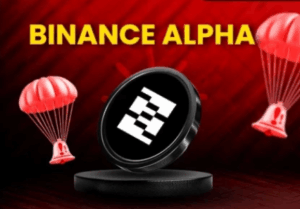Cardano Founder Rejects El Salvador Bitcoin Proposal Over Gang Ties

Cardano’s Charles Hoskinson Reveals Missed Opportunity in El Salvador Due to airdrop Concerns
Controversial Discussions with El Salvador’s Government
Charles Hoskinson, the founder of Cardano, recently disclosed that he opted out of a potential partnership to integrate Cardano into El Salvador in 2021. His decision stemmed from worries regarding the government’s proposal to distribute cryptocurrency directly to its citizens, which included individuals associated with the infamous MS-13 gang.
In a candid interview on the Shawn Ryan Show, Hoskinson recounted a tumultuous week of negotiations with President Nayib Bukele’s administration. He expressed that the proposed airdrop could potentially breach U.S. sanctions, leading to significant repercussions from Washington.
Disarray in Salvadoran Governance
During his visit to El Salvador in 2021, Hoskinson described a chaotic atmosphere within the government. He recounted encounters with unconventional officials, including a Minister of Energy who proclaimed, “The power of magma will be the destiny of El Salvador,” while pitching ideas for a geothermal Bitcoin mining initiative.
Hoskinson noted that the strategies for adopting Bitcoin nationally appeared disorganized, with officials reportedly relying on informal communication platforms like WhatsApp and Facebook speeches from President Bukele as their primary policy references.
“When we inquired about the compliance requirements for cryptocurrency adoption, they admitted, ‘We don’t have any,’” Hoskinson reflected. “We asked where their business requirements came from, and they said Facebook.”
airdrop Dilemma and U.S. Relations
The critical issue arose during discussions with U.S. representatives. Hoskinson claimed that it became evident Bukele intended to execute a universal airdrop, which he believed would inadvertently provide cryptocurrency to MS-13, a group classified as a Transnational Criminal Organization by the U.S. Office of Foreign Assets Control (OFAC).
“Bukele aimed to distribute Bitcoin to everyone in El Salvador,” Hoskinson explained. “We pointed out that MS-13 is on an OFAC list, and by doing this, we would be facilitating value transfer to a terrorist organization. That’s unacceptable.”
He further mentioned that collaboration with U.S. authorities was unfeasible, particularly under the Biden administration, which he described as having a “regime change” approach towards Bukele.
“We just couldn’t reach an agreement. So, after a week, we decided to walk away from the deal,” he concluded.
El Salvador’s Bitcoin Journey
Despite Hoskinson’s withdrawal, El Salvador proceeded with its Bitcoin initiative, officially recognizing it as legal tender and launching the government-supported Chivo wallet. Hoskinson acknowledged the significance of this move, noting that the Central American nation currently holds 6,230 BTC, valued at approximately $679 million.
“This was a landmark moment,” he stated. “It established Bitcoin as an official currency and compelled the IMF and other international entities to start acknowledging Bitcoin.”
Reactions from the Crypto Community
Hoskinson’s revelations sparked immediate skepticism within the cryptocurrency community. Bitcoin advocate Cory Bates expressed doubts about the accuracy of the narrative:
“I suspect this isn’t quite how the events unfolded.”
Another analyst, known as The Bitcoin Therapist, was more direct, labeling it the “dumbest thing I’ve ever heard.”
Neither Bukele’s administration nor U.S. officials have publicly confirmed Hoskinson’s version of events.
Meanwhile, Cardano’s native token, ADA, has shown slight resilience, trading at $0.5768 at the time of writing, reflecting a 2.0% increase over the past week, slightly outperforming the broader cryptocurrency market. However, it remains down 12.5% over the last month and significantly trails its all-time high of $3.09 reached in September 2021.







